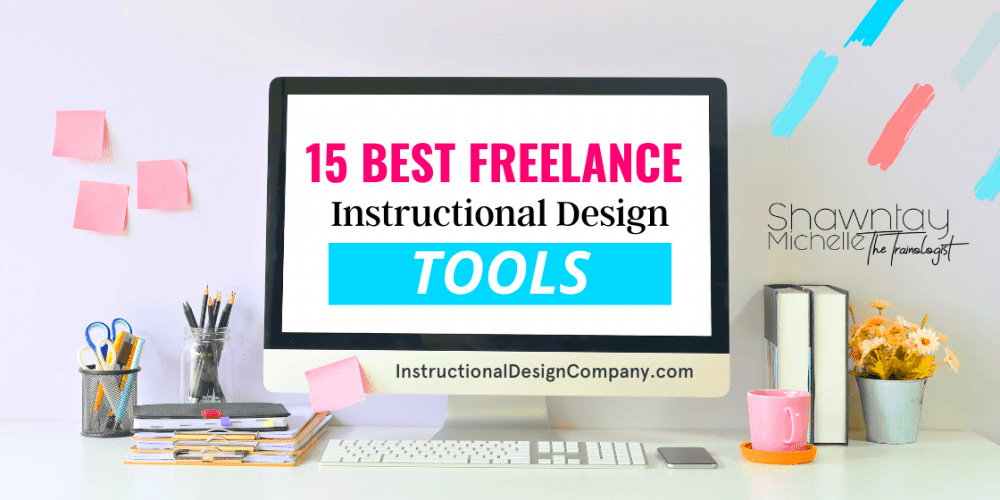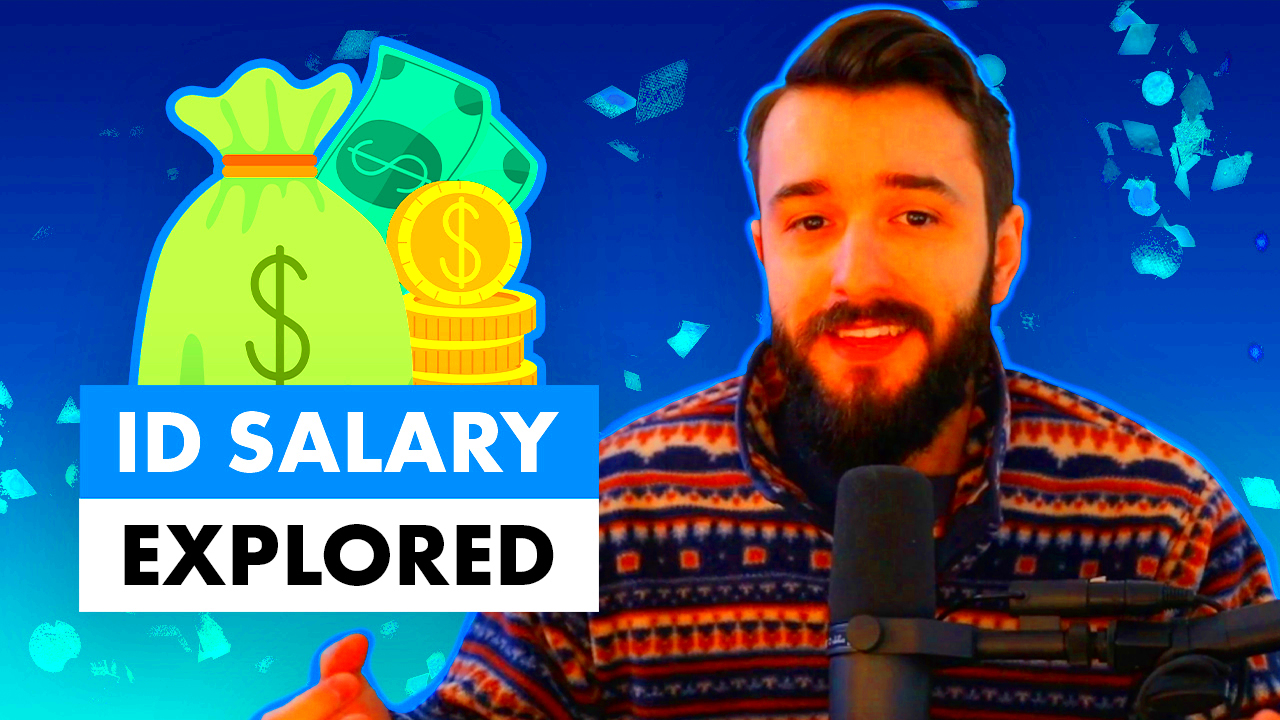Freelance instructional designers are professionals who create educational materials, courses, and training programs. These designers work independently, meaning they are not tied to a single company or institution. They can work for various clients, ranging from schools to businesses, providing solutions to help people learn better. With the rise of online education and corporate training programs, the demand for skilled instructional designers has grown. Freelancing in this field offers flexibility and the chance to choose projects that align with one's interests and skills.
Factors Affecting Freelance Instructional Designer Earnings

The earnings of freelance instructional designers depend on various factors. Here are the key elements that influence their income:
- Experience: Experienced instructional designers usually command higher rates due to their proven skills and expertise.
- Client Type: Working with large corporations or educational institutions often results in higher pay than working with small businesses.
- Project Complexity: More complex projects, such as those requiring advanced technical skills or a deep understanding of the subject, tend to pay better.
- Geography: Location can impact earnings, as designers in areas with a higher cost of living may earn more.
- Industry: Instructional designers working in specialized fields, such as healthcare or technology, may earn more due to the niche skills required.
All of these factors come into play when determining how much a freelance instructional designer can earn. Adjusting your rates and choosing projects wisely can help maximize your income.
Also Read This: Top 10 PPC Specialists on Fiverr in 2024
How Experience Impacts Earnings in Instructional Design

Experience plays a significant role in the earnings of instructional designers. Here's why:
- Entry-Level: New instructional designers may start with lower rates as they build their portfolio and gain practical experience. They typically work on smaller projects with less complexity.
- Mid-Level: With 3 to 5 years of experience, instructional designers can raise their rates. They often have a diverse portfolio and are capable of handling more complex projects.
- Senior-Level: Experienced designers with 10+ years of experience can command top-tier rates. They bring a wealth of knowledge and can manage large-scale projects, sometimes leading teams of other designers.
Overall, as you gain more experience, you become more valuable to clients, allowing you to earn higher rates. Clients are willing to pay more for designers who can deliver quality work consistently.
Also Read This: How to Make an Account on Fiverr
Types of Projects That Affect Freelance Earnings

The type of project you take on as a freelance instructional designer can greatly influence your earnings. Different projects require different levels of expertise, time, and effort, all of which impact how much you can charge. Here are some examples:
- Corporate Training Programs: These are often large-scale projects with bigger budgets. They may involve designing learning modules, eLearning platforms, or training programs for employees. These projects typically pay higher rates.
- Online Course Creation: Building courses for online platforms like Udemy or Coursera can vary in pay. High-quality, niche courses that require deep knowledge tend to be more lucrative.
- Educational Institutions: Designing courses for universities or schools often pays well but can have lower rates compared to corporate work. However, they offer more long-term projects.
- Consulting and Auditing: Some instructional designers offer consulting services to organizations, helping them assess or improve their existing training programs. These consulting services usually come with premium pay rates.
When choosing projects, consider the complexity and potential client, as both can have a direct impact on your income. More specialized and larger projects tend to have higher pay rates, but they may also require more time and effort.
Also Read This: Can You Ship Products Through Fiverr? Here’s What You Need to Know
Where Freelance Instructional Designers Work

Freelance instructional designers have the flexibility to work from almost anywhere, thanks to the rise of remote work opportunities. Here are some of the common places where freelance instructional designers find work:
- Remote Work from Home: Many freelance instructional designers work entirely from home, communicating with clients via email, video calls, and project management tools.
- Corporate Clients: Freelancers often collaborate with corporations who need instructional design services for internal employee training programs. These clients usually offer higher pay rates.
- Educational Institutions: Schools, colleges, and universities hire freelance instructional designers to develop curriculum and eLearning content.
- Freelance Platforms: Websites like Fiverr, Upwork, and Freelancer are popular places where instructional designers can find short-term and long-term projects. These platforms help connect designers with clients across the globe.
The location you work from will often depend on your preferences, but the demand for instructional design services can be found globally, which makes it a great field for freelancers seeking flexibility and diverse work environments.
Also Read This: How to Block Sellers on Fiverr: A Step-by-Step Guide
Tools and Skills That Can Boost Earnings
To increase your freelance earnings, having the right tools and skills can make a huge difference. The more you can offer clients in terms of technology, creativity, and expertise, the higher your potential income. Here are some important tools and skills:
- Authoring Tools: Software like Articulate Storyline, Adobe Captivate, and Lectora are commonly used to create eLearning courses. Mastery of these tools can allow you to take on more complex projects.
- Learning Management Systems (LMS): Familiarity with LMS platforms such as Moodle, TalentLMS, or Canvas can be valuable. Many clients look for instructional designers who can integrate their content into these systems.
- Project Management Tools: Tools like Trello, Asana, or Basecamp help keep projects organized and on schedule. Being skilled in these tools can make you more attractive to clients looking for someone who can manage deadlines efficiently.
- Subject Matter Expertise: Having knowledge in specific industries or subjects, such as healthcare, technology, or business, can make you stand out. Specialized knowledge often commands higher rates.
- Instructional Design Methodologies: Familiarity with popular design models like ADDIE or SAM shows clients that you understand the process of creating effective educational content. Expertise in these frameworks can justify charging higher rates.
By mastering these tools and skills, you can position yourself as a high-quality, in-demand instructional designer, able to tackle a wide range of projects and command higher fees.
Also Read This: How to Recover a Denied Gig on Fiverr
Typical Salary Ranges for Freelance Instructional Designers
The salary range for freelance instructional designers can vary widely based on experience, industry, project complexity, and location. On average, freelance instructional designers charge between $40 to $150 per hour. Here’s a breakdown of typical rates:
| Experience Level | Hourly Rate |
|---|---|
| Entry-Level (0-2 years) | $40 - $60 |
| Mid-Level (3-5 years) | $60 - $100 |
| Experienced (5+ years) | $100 - $150 |
In addition to hourly rates, many instructional designers also work on a per-project basis. For example, creating an online course may cost anywhere from $2,000 to $15,000, depending on the complexity and length of the course. Larger corporate projects may pay even higher fees. Freelancers with niche expertise, such as in healthcare or technology training, often command higher rates due to the specialized knowledge required.
It’s important to note that location can influence pay as well. Designers in major metropolitan areas may be able to charge more than those in smaller cities or rural areas. Ultimately, your ability to negotiate and the quality of your portfolio will play a big role in determining how much you earn.
Also Read This: How Does the Fiverr Algorithm Work?
FAQ About Freelance Instructional Designers' Earnings
Here are some frequently asked questions about the earnings of freelance instructional designers:
- How much can a freelance instructional designer make in a year? The annual income can vary greatly, but a freelance instructional designer can make anywhere from $50,000 to $120,000 annually, depending on experience, project load, and industry.
- Do freelance instructional designers earn more than salaried designers? In many cases, freelance instructional designers can earn more than salaried designers because they have the ability to set their own rates and take on multiple projects at once. However, the income can be less predictable.
- What factors should I consider when setting my rates? Your rates should reflect your experience, the complexity of the project, the client’s budget, and market demand. Researching the going rate for your skillset and niche is a good starting point.
- How can I increase my earnings as a freelance instructional designer? Gaining specialized expertise, mastering popular authoring tools, building a strong portfolio, and consistently delivering high-quality work will help you attract higher-paying clients and projects.
Conclusion
Freelance instructional design can be a rewarding career with the potential for a lucrative income. The amount you can earn depends on various factors, including your experience, the types of projects you take on, your skills, and where you work. By choosing the right projects, mastering the tools of the trade, and gaining specialized knowledge, you can increase your earning potential and position yourself as an in-demand professional in the field.
As you build your freelance career, remember to continuously assess your rates, improve your skills, and network with potential clients. Over time, these efforts can lead to greater financial success and job satisfaction.




